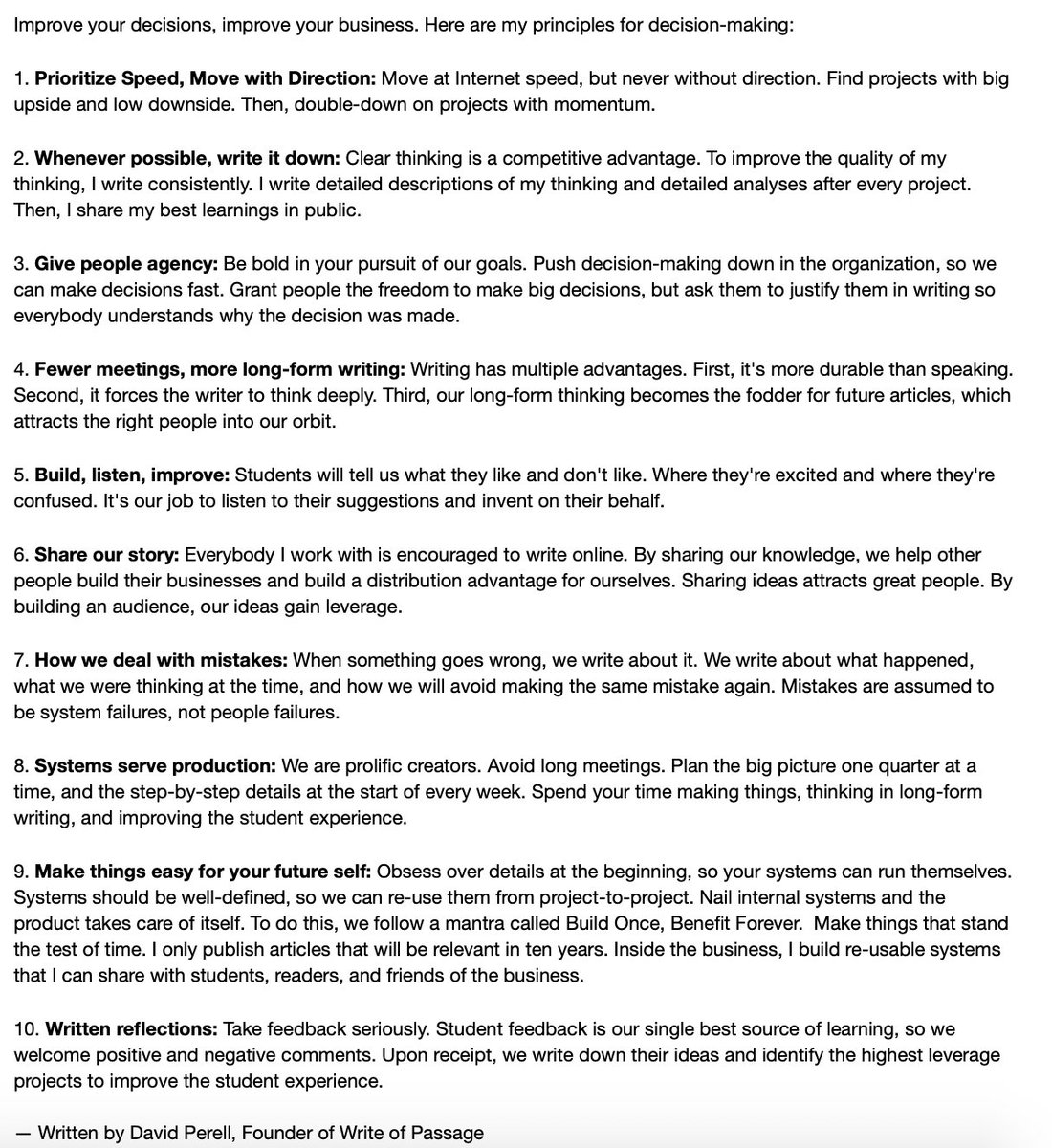Here are my principles for decision-making:
1. Prioritize Speed, Move with Direction: Move at Internet speed, but never without direction. Find projects with big upside and low downside. Then, double-down on projects with momentum.
Clear thinking is a competitive advantage. To improve the quality of my thinking, I write consistently. I write detailed descriptions of my thinking and detailed analyses after every project. Then, I share my best learnings in public.
Be bold in your pursuit of our goals. Push decision-making down in the organization, so we can make decisions fast. Grant people the freedom to make big decisions, but ask them to justify them in writing so everybody understands why the decision was made.
Writing has multiple advantages. First, it's more durable than speaking. Second, it forces the writer to think deeply. Third, our long-form thinking becomes the fodder for future articles, which attracts the right people into our orbit.
Students will tell us what they like and don't like. Where they're excited and where they're confused. It's our job to listen to their suggestions and invent on their behalf.
Everybody I work with is encouraged to write online. By sharing our knowledge, we help other people build their businesses and build a distribution advantage for ourselves. Sharing ideas attracts great people. By building an audience, our ideas gain leverage.
When something goes wrong, we write about it. We write about what happened, what we were thinking at the time, and how we will avoid making the same mistake again. Mistakes are assumed to be system failures, not people failures.
We are prolific creators. Avoid long meetings. Plan the big picture one quarter at a time, and the step-by-step details at the start of every week. Spend your time making things, thinking in long-form writing, and improving the student experience.
Obsess over details at the beginning, so your systems can run themselves. Systems should be well-defined, so we can re-use them from project-to-project. Nail internal systems and the product takes care of itself.
Take feedback seriously. Student feedback is our single best source of learning, so we welcome positive and negative comments. Upon receipt, we write down their ideas and identify the highest leverage projects to improve the student experience.
But business writing is very different from what you learned in school. Clarity matters above everything else, and when you're pressed for time, you have to write fast.
Start here if you want to improve your writing.
You'll learn about The Netflix Principle, why you should write in small chunks, and how to get rid of writer's block.
ageofleverage.com/course















